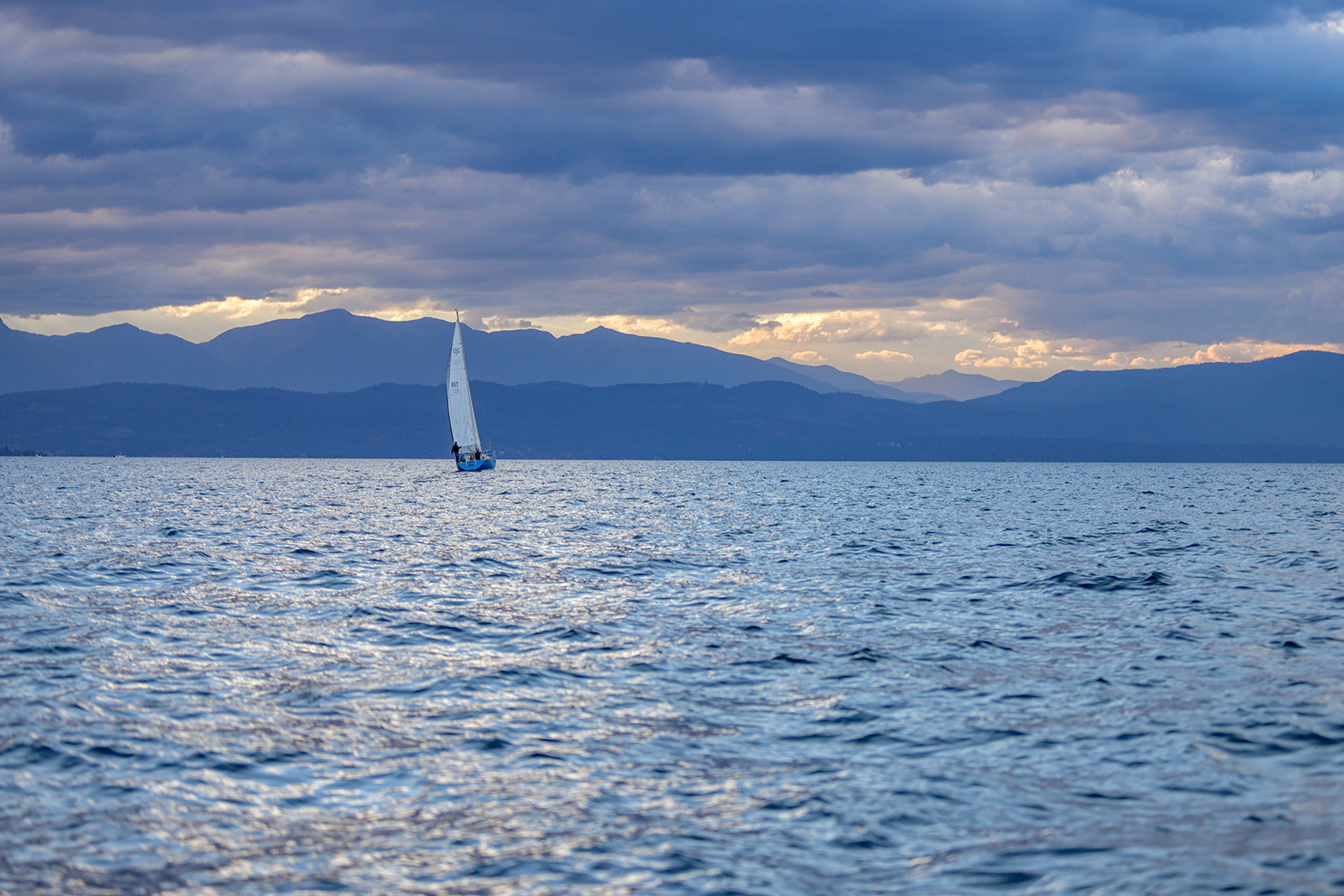Flathead Lake ‘Recreation Needs’ Enter the Legislative Session
The joint resolution would request that recreational access needs to be measured fairly in comparison to the water's other uses
By Zoë Buhrmaster
The issue of Flathead Lake’s water levels has entered the state legislature with a resolution to treat recreation on par with the rest of the water’s various uses.
Senate Joint Resolution 18 requests that decision-making bodies who oversee the lake’s water levels “ensure that recreation needs be measured fairly compared to hydropower, fish, and irrigation demands.” The resolution adds that with negotiations to renew the 60-year-old Columbia River Treaty currently on pause, those needs should be “expressly reflected” in the treaty’s next iteration.
The resolution’s sponsor, Senate President Matt Regier, R-Kalispell, said his intention with the resolution is to bring into the conversation those who live on the lake.
“Everyone else’s got a voice at the table,” Regier said. “Those who use it need a voice too.”
The issue stems from 2023 when Flathead Lake did not reach full pool during the summer months, due to a low snowpack and exceptional heat wave in May that resulted in early glacial water runoff. For the Se̓liš Ksanka Qĺispe’ (SKQ) dam at the base of Flathead Lake, this meant not enough water in the summer season to meet the required instream flows for Lower Flathead River and to keep the lake at full pool, a recommendation but not a requirement according to the dam’s regulatory license.
Brian Lipscomb, CEO of the Energy Keepers Inc. (EKI) which oversees the dam, said that the record temps point to larger climate-related changes that are showing up on EKI’s prediction models. These extreme hot and colds are resulting in a wider range of temperature averages, he said, affecting how and when water replenishes the basin.
“We just got to think, how do we be resilient in the face of all that,” Lipscomb said. “Looking backwards, it is not what we’re going to see looking forward.”
The low levels in 2023 forced boat owners to pull watercrafts from the lake and local businesses to lose tourism income. It prompted the county commissioners to request a disaster declaration from Gov. Greg Gianforte to supplant the economic impacts.
Regier said he originally considered proposing the issue to the session as a bill “with more teeth,” but realized there are too many players with vested interest in Flathead Lake levels, including the U.S. Army Corps of Engineers (USACE), the Bureau of Reclamation (which operates Hungry Horse Dam), the Columbia River Technical Management Team (TMT) and other entities throughout the basin.
SJ 18 passed unanimously out of the Senate Natural Resources Committee on Wednesday with votes from local committee members Sen. Mark Noland, R-Bigfork, and Sen. Mike Cuffe, R-Eureka. The resolution must go through the Senate floor, House committee and House floor, and governor’s office before it is adopted.
On the national level, Rep. Ryan Zinke, R-Mont., introduced a House bill in 2023 titled “Fill the Lake.” Notably more stringent than SJ 18, the bill would require that between June 15 and September 15 each year the Secretary of the Interior must ensure that Flathead Lake has a minimum level of 2,892 feet by using water from Hungry Horse Reservoir, although in 2023 TMT deemed this solution unfit because of the adverse effects it would have on the watershed’s ecosystem and the minimum relief it would provide.
The House referred the bill to the Committee on Natural Resources on January 23, 2025, where it has yet to receive a hearing.
Though exceptional, the summer of 2023 was not the first time Flathead Lake had failed to reach full pool of 2,893 feet. In the summer of 1940, the lake hovered around 2,891 feet. Another drought year in 2001 brought July’s peak water level to 2,892.34.
If passed, the state resolution would be sent to the U.S. and Canadian entities negotiating the Columbia River Treaty, the Bonneville Power Administration, the TMT, the USACE, the British Columbia Hydro and Power Authority and all tribal governments in Montana.
In the resolution’s initial hearing, Regier recalled growing up recreating on the lake.
“It’s a lake that I grew up water skiing on,” Regier said. “So many people did, and to not be able to use it like that needs to be in the conversation.”